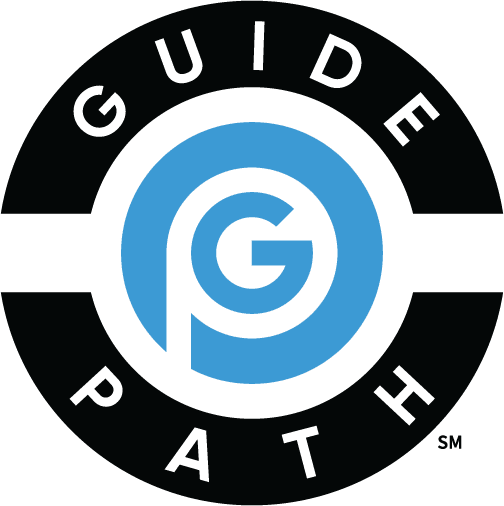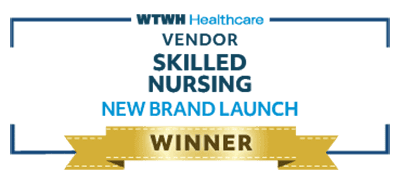As senior living communities begin implementing the new CMS regulations approaches, they are facing a moment of both urgency and opportunity. The evolving regulatory landscape demands more than check-the-box compliance—it calls for a rethinking of how care is delivered, how risk is managed, and how culture is sustained. This is where Guide Path’s nationally accredited Certification Program emerges as a vital partner, offering a proactive framework not only for meeting the new CMS standards but for building enduring practices that improve outcomes, reduce risk, and center the resident experience.
While compliance has always been essential in senior living, today’s regulations reflect a broader shift toward person-centered care, interdisciplinary collaboration, and accountability in quality improvement. Communities that embrace these shifts will be best positioned not only to pass surveys but to thrive in an increasingly transparent and performance-based environment. The Guide Path Certification Program is designed for exactly this purpose—to elevate care and culture while safeguarding compliance.
Guide Path Certification: Meeting the Moment with Strategy, Structure, and Sustainability
Guide Path’s Certification Program doesn’t just help providers understand what the regulations require—it gives them the tools, training, and frameworks to implement those expectations consistently across departments, shifts, and systems. At its core, Guide Path is a risk management and culture change solution, built to reduce uncertainty and create clarity for staff, residents, and families alike.
Each certification begins with a Transformation Readiness Assessment, identifying gaps and opportunities across multiple domains: communication, care practices, safety, leadership, and staff and family engagement. From there, each module includes robust education, actionable strategies, and the development of a Community Commitment Plan—a living roadmap that helps communities turn knowledge into measurable change.
Person-Centered Care: From Policy to Practice
One of the most significant updates in CMS’s regulatory framework is its heightened focus on person-centered care planning. Guide Path Certification directly supports this goal by ensuring that care plans are rooted in each resident’s unique needs, preferences, histories, and values—not simply their clinical diagnoses. Through Guide Path’s resources, care teams learn how to have meaningful conversations with residents and families using tools like the Resident and Family Insights Survey and The Caring Conversation guide. These tools capture the “whole person” perspective, which CMS now emphasizes as central to quality of life and care. By supporting staff in this deeper approach to assessment and care planning, Guide Path helps communities align more fully with F675 and F656 regulations, while also enhancing satisfaction and reducing complaints and care-related misunderstandings.
Strengthening Transitions of Care and Reducing Risk
Smooth transitions—admissions, transfers, and discharges—are a hallmark of quality in senior living. CMS has made this a priority with strengthened requirements around discharge planning, communication, and documentation. Guide Path supports this through its Resident & Family Insights Survey Suite, which gathers essential information upfront and supports consistency of care across settings.
When transitions are poorly managed, risk increases: medical errors, emotional distress, family dissatisfaction, and potential litigation. By training staff in how to manage these transitions holistically, Guide Path helps providers reduce adverse outcomes, improve continuity of care, and ensure that their processes reflect CMS’s heightened expectations.
Better Assessments, Better Outcomes
CMS’s updated F641 requirement demands more accurate, timely, and person-centered assessments. Guide Path’s Certification responds by helping care teams adopt interdisciplinary, trauma-informed, and culturally sensitive assessment practices.
Training includes instruction on how to gather meaningful insights, avoid assumptions, and respect cultural preferences and lived experiences. The result is a more complete picture of the resident—supporting compliance, yes, but also improving outcomes through better care planning, engagement, and trust.
Culture Change Through Commitment: The Power of the Guide Path Plans
What sets Guide Path apart is not just its alignment with regulatory frameworks—but its insistence on transformative culture change. Central to this are the Community Commitment Plans, developed for each of the nine certification modules.
These are not abstract policy documents—they are collaborative, department-wide commitments that reflect the unique needs and goals of each community. Each Plan outlines:
- The steps a community will take to improve care or communication practices
- Who is responsible for implementation
- How success will be measured
- How sustainability will be ensured
In this way, Guide Path transforms compliance from a reactive exercise into a proactive opportunity. The Commitment Plans serve as QAPI-aligned improvement projects, reinforcing CMS expectations for continuous quality improvement, while also empowering staff with purpose and ownership.
Integrating Risk Management and QAPI: A Path to Resilience
Guide Path Certification weaves together risk management and quality improvement in a way that is uniquely suited to today’s senior living environment. It offers tools to conduct proactive risk assessments, identify patterns that lead to harm or dissatisfaction, and develop early interventions to reduce the severity of claims and regulatory citations.
Communities learn how to embed risk awareness into their QAPI processes, ensuring that compliance is not a one-time fix but an ongoing process. This alignment allows providers to anticipate CMS surveyor focus areas and respond with confidence—armed with education, documentation, and staff engagement strategies.
More importantly, by supporting staff to understand the why behind regulations and the how behind solutions, Guide Path helps create cultures that are resilient, not just compliant.
Why Education and Training Are No Longer Optional
In the current climate, the absence of proactive training is itself a risk. CMS’s focus on workforce education, communication, and interdisciplinary collaboration makes it clear: staff must be equipped—not just expected—to deliver compliant, compassionate care.
Guide Path fills this gap by providing:
- Staff education modules with real-world case studies
- Leadership training focused on team accountability and culture
- Family education tools that improve understanding and trust
- A nationally accredited framework that ensures credibility and consistency
Investing in certification today means not only avoiding penalties tomorrow—it means creating a stronger foundation for care, satisfaction, and growth.
The Value of Guide Path in a Time of Change
The senior living industry is entering a new era—defined by transparency, rising expectations, and a growing call for excellence. Compliance, culture, and care are now inseparable. And Guide Path stands at the intersection of all three.
Our Certification Program is a strategic investment in your community’s future. It offers more than a badge—it offers a blueprint. One that reduces risk, satisfies regulators, elevates care, and supports your staff to meet challenges with confidence and purpose.
The opportunity is here.
To not only comply—but lead.
To not only train—but transform.
To not only reduce risk—but elevate lives.
Partner with Guide Path and let’s redefine what’s possible in senior living—together.







